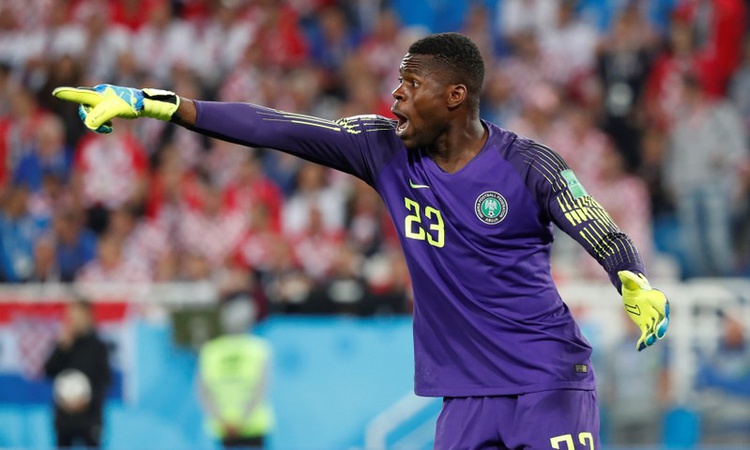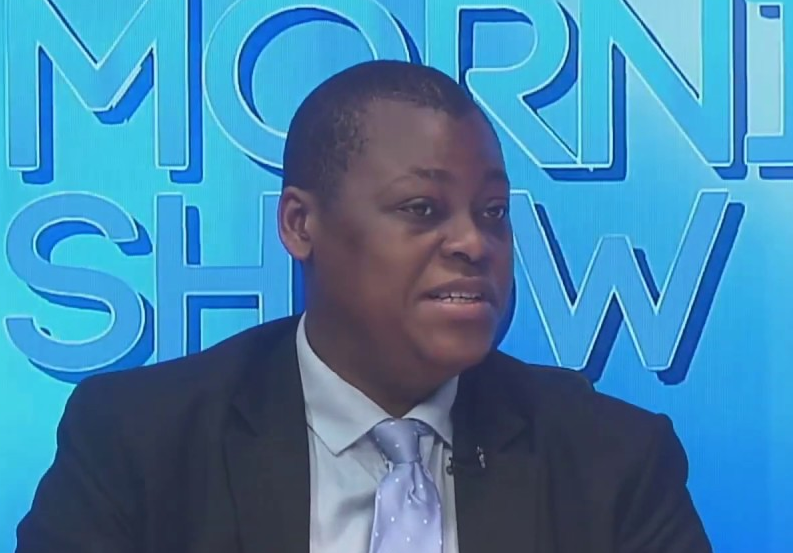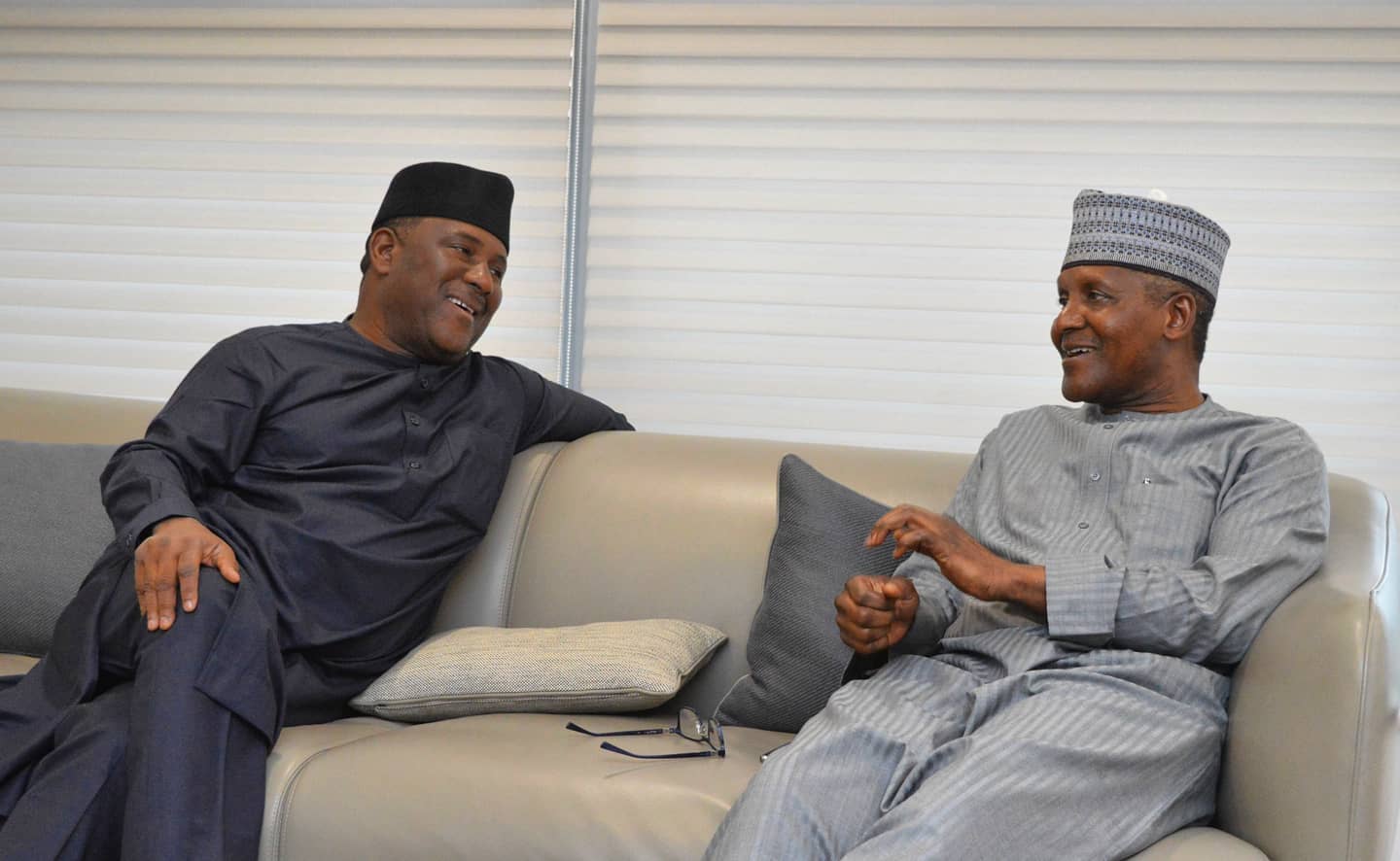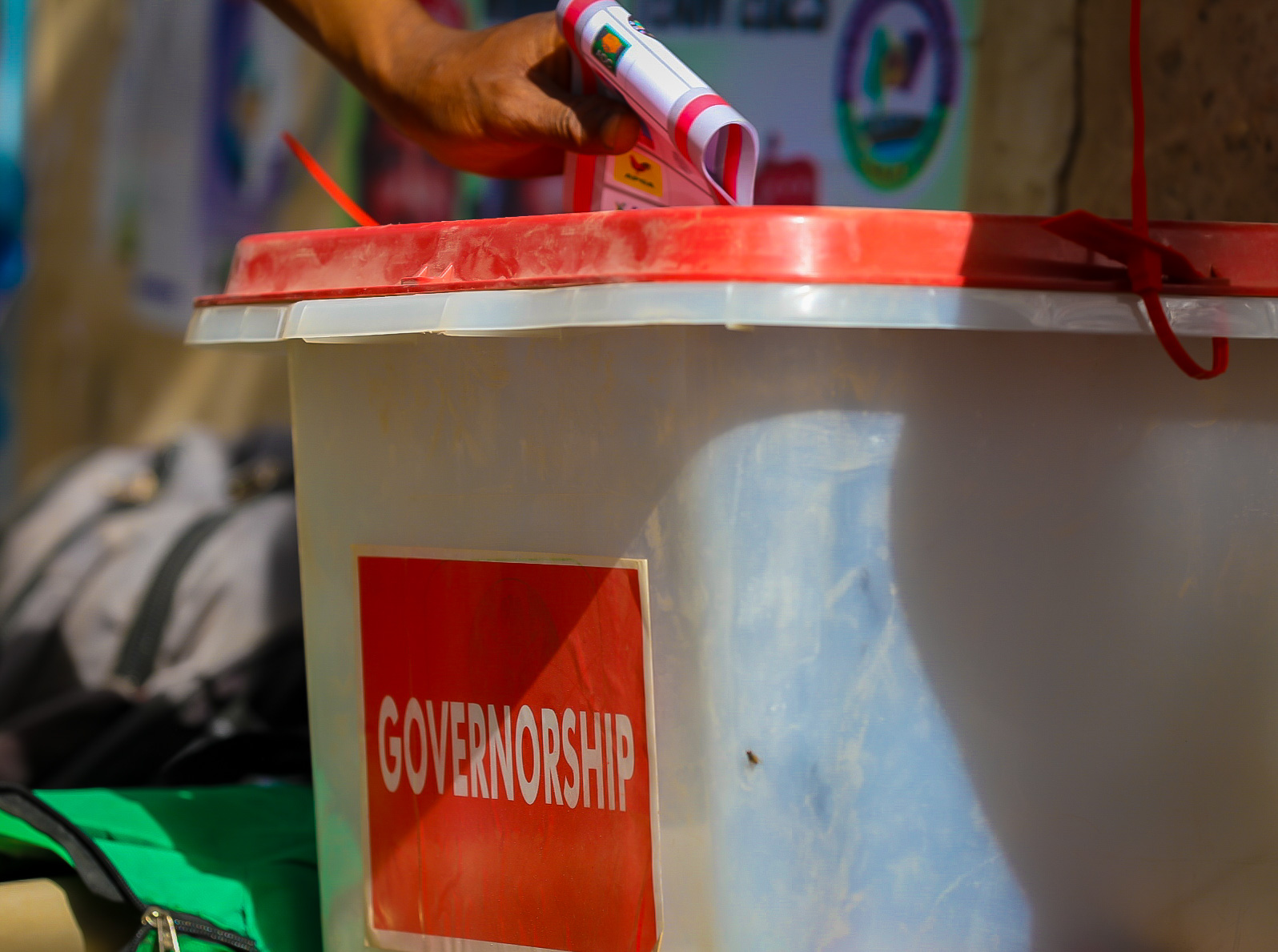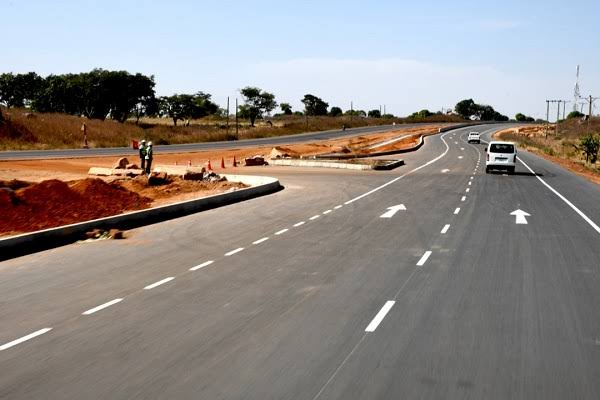Goalkeeping is a department in the beautiful game of football where competition for a starting shirt is the fiercest. You need only one active goalkeeper among the eleven players that would start a match, or be involved actively in a match at every point, while the others (reserve) sit on the bench. They’re only called upon, whenever someone is injured or fatigued. One of them gets introduced if a starter gets injured, gets red-carded, or performs below par, during the course of the game. His removal might also be down to a need for tactical manoeuvring by the coach, given the development of the game. Meanwhile, each of the other departments requires at least, two players, depending on the tactical preferences of the coach.
Competition for goalkeeping shirts out there is so fierce that, whoever gets lucky to have it does everything humanly possible to retain it, even if it means putting in an extra shift in training. The fate of a goalkeeper could take a twist within a second, and his life and career would never remain the same again, for good or for bad. This could be due to a moment of indiscretion, or loss of concentration, on, or off, the pitch.
A few examples will suffice. As France prepared for the 1998 World Cup which it hosted and won, a certain Bernard Lama was primed to be the safest pair of hands between the sticks for “Les Blues”, as the senior national football team is fondly called by their supporters. But he tested positive for cannabis, which earned him a two-month ban, in February 1997 – over a year to the kick-off of the “France 98” World Cup. He lost his starting shirt to Christophe Revault at PSG, as a result, and by the summer of 1997, the Parisiens told him to look for another club. And he secured for himself, a six-month contract at West Ham United in the English Premier League, in January 1998, so that he could remain fit, and in contention for a space in the coach Aime Jaquet’s team that would later go on to win the World Cup that year. But after all efforts, he lost the number one slot to a certain Fabien Barthez, who was then on the book of French Ligue 1 side, AS Monaco.
Another very dramatic example was Santiago Canizares of Spain. After living in the shadow of Andoni Zubizarreta through the 90s, a domestic accident with an aftershave bottle, which slit the tendon in his foot, ensured he never made it to the Korea-Japan 2002 World Cup when his club form for Valencia stood him in a better position than any other Spanish goalkeeper at the time, to be chosen as the first choice for the La Rojas. But he lost that chance to a 21-year-old Iker Casillas of Real Madrid, who would later go ahead to name the position after himself for more than a decade. So, a little twist in events, on, or off the pitch could turn out to be a final determinant of the shape of a player’s career, especially a goalkeeper. A moment of indiscretion loss of concentration, or exuberance could make or mar a goalkeeper’s career. So also, a moment of well-utilised opportunity could make a keeper’s career to continue to grow.
Advertisement
That brings to memory, the National team (the Super Eagles) odyssey of Abiodun Baruwa, as a goalkeeper. Being the most expensive athlete in his position in the Nigerian league then (at ₦1,000,000), manning the post for Shooting Stars Sports Club (3SC) of Ibadan in the mid-90s, his ascension to the senior national team, as a matter of belief, was a question of time. This was so, especially, with his transfer from 3SC to FC Scion of Switzerland in 1997 coupled with the imminent exit of Peter Rufai, Alloy Agu, and Wilfred Agbonavbare (of blessed memory). But a moment of indiscretion in a friendly match, preparatory to the France 1998 World Cup, in April that year, against Yugoslavia (now Serbia) changed his story negatively. Ọmọ Alhaja, as he is popularly called, was looking at the promised land, but never stepped his foot on it. He never made it to France. Before then, on the eve of the Atlanta 96 Olympic Games, he lost the number one slot to Dosu Joseph, due to what the then coach of the team, Johan Bonfrere, called, jet lag, after about a 23-hour flight from Nigeria to the United States of America. He’d, though, come out to say that he only had a slight fever that prevented him from training for two days, the team doctors said he would not be ready for the games, and his name was, therefore, dropped from the final list submitted to the Olympic Games organisers, with little or no room for alteration. Nigeria won the gold medal in the football event that year – the first African country to do so. So it was a pointer to whoever got the chance to man the post for the national team that, there was no room for complacency. This was due to the availability of many alternatives on the bench that were as good as, if not better than, the incumbent.
When Ike Shorunmu was the first-choice goalkeeper, the likes of Ndubuisi Egbo, and Murphy Akanji were also in the mix, breathing down his neck such that any slip-up from him, would hand a golden opportunity to the younger, and seemingly hungrier ones on the bench. In the Korea-Japan 2002 World Cup, the duo of Austin Ejide, and Vincent Enyeama were drafted in to understudy Shorunmu who was then, at the twilight of his career. It was Enyeama who got the chance against England in the final group game, and he made that fantastic when Paul Scholes struck one of his trademark shots. That was all Nigerians needed to know, the then Enyimba International’s goalkeeper was the one they’d been looking for. He, after that, pocketed the position for more than a decade. With the benefit of hindsight, since the retirement of Vincent Enyeama in October 2015, and the untimely exit of his successor, Carl Ikheme, in 2016, due to leukaemia, Nigeria have never been able to get a safe pair of gloves to man the goal for the Super Eagles.
Nigeria has had to endure putting up with mediocre goalkeepers. From Austin Ejide to Daniel Akpeyi, to Francis Uzoho, to Maduka Okoye, it’s been a litany of errors. Nigerians even thought that, following Uzoho’s gazumping of Dele Alampasu, when the former emerged from Deportivo Lacoruna’s team B, Nigeria had come to the end of the long search for Enyeama’s successor. But we were wrong.
Advertisement
Then came Okoye from Germany. A young, good-looking, and promising goalkeeping talent. But he failed to deliver against Tunisia at the African Cup of Nations in Cameroon last year. He conceded what many Nigerian fans saw as a cheeky goal. Worse still, he lacked the emotional stamina to handle (empty) threats from Nigerian fans. He thought it was like in Europe or South America, where fans could go as far as killing an athlete to drive home their disappointments over the outcome of a match. Colombian, Andrés Escobar was shot dead in 1994, for scoring an own goal against his country at the US 94 World Cup. It was Colombia’s second group match against the hosts, USA, during the FIFA World Cup. So, due to the difference in mentality, Okoye went on a self-imposed exile from the national team. I am not justifying the threat (whether empty or real) issued to him by a tiny minority of the fans, but assuming he grew up in Nigeria, he would have known that: “Nothing dey Happen” like we say, in the local parlance. He would have stayed, and continued his (mental) development with the national team, as talent alone cannot sustain anyone who wants to don the “Gree-White-Green jersey”. Attitude would have to complement aptitude. He is now on the verge of a return, I learnt.
Okoye’s self-imposed exile forced Nigerians to resort to inviting Uzoho, despite his high-profile errors between the sticks for the national team in the not-too-distant past. He served Nigerians the worst of “breakfasts” in Abuja, on the 29th day of March 2022, when all Nigeria needed to be in Qatar 2022 FIFA World Cup was to beat Ghana by any goal margin, having played out a barren draw in Kumasi. But he chose to concede a cheeky goal from a shot that, even my two-year-old daughter, would have saved. With that still fresh in our memories, Uzoho would spice it up with another schoolboy error in friendly matches against Saudi Arabia, and Mozambique, last month. Such is the complacency and lackadaisical attitude that have become some of the notable elements of culture in the Super Eagles of today. While Nigerians were still raging with anger, the 24-year-old Uzoho had the temerity to go on social media (Snapchat) to post a picture, tagging it “do it if it’s easy”. What insolence!
Anyway, that is what you reap when you sow the seed of mediocrity, and irrigate it to such a level that, complacency becomes a part of the appurtenances. It becomes worse, when there is no atmosphere of (a healthy) competition to keep everybody on his toes. Goalkeepers making mistakes is not uncommon in the game of football at every level. So Uzoho did not commit any crime that is beyond pardon. But what should not be tolerated is his ill-thought-out social media outburst, which to me, is an assault on our collective sensibilities. Yet, the team’s gaffer, José Pesseiro is now telling us that we’re stuck with such an error-prone guy, while Nigeria is blessed with an avalanche of goalkeeping talents, home and abroad, who are better than Uzoho. But that can only happen in the Nigerian national team of today, where whom you know, and not what you can do, based on your current form, determines whether or not, you’d be invited. That explains why, Ojo Ọlọ́runleke who has been the number one goalminder for Enyimba international football club of Aba was in the last two years, being consistently ignored by national team selectors. Meanwhile, the player he benches, John Noble, continually got invited, until recently, when the Kabba-born goalkeeper got a look in.
Such is the sorry pass in which Nigeria – a globally respected footballing nation, has found itself. No, thanks to the culture of complacency brooked by the team’s minders, as a result of their own compromised positions. The least Uzoho deserves as a punishment for his error-laden national team career so far is, for him to be excused from the national team for now.
Advertisement
I understand that the dragnet for scouting eligible players is no longer spread wide enough to recruit the best of eligible talents to the Nigerian national teams. As a result, the culture of competition in the national team is long dead. Reports have emerged, in the aftermath of Uzoho’s debacle, unearthing a list of about four Europe-based goalkeepers of Nigerian descent, who are performing at higher levels than our purported best pair of safe hands. Names like Arthur Okonkwo (Arsenal of England) Noah Atolobu (Frieburg of Germany) Jonathan Ayoola Rasheed (Varnamo of Sweden), Tobias Okiki Lawal (LASK of the Austrian Bundesliga) have popped up, from among whom Jose Peseiro could choose replacements for Uzoho, or a total overhaul of the entire goalkeeping structure, letting go of some of those currently jostling for the starter shirt but are not-good-enough to upstage the poor-performing Omonia FC Keeper.
The ball is now in the court of the Nigerian Football Federation (NFF) to decide whether they feel Pesseiro is the calibre of coach that will take our football, at the level of national teams, to heights, greater than we have ever attained. Whatever they decide, however, they do it, they need to just make sure that Uzoho is taken off the team, at least for now, until frayed nerves are calmed. “Nigerians dey para” now, to exorcise the dual spirits of complacency and mediocrity” among those jostling for the number one position between the sticks.
I read on social media that, some people are mooting the idea of bringing back Enyeama, seven years after the legend had retired from the national team, and active football altogether. It scared me, as much as it shocked me. I do not know, how true that is, but I can’t put it (bringing back Enyeama) beyond the current rudderless leadership of the federation. But, whoever is toying with the idea needs to perish the thought right now, or go a step further to bring back the likes of Christian Chukwu, Segun Odegbami, Peter Rufai, Jay Jay Okocha, Kanu Nwankwo, Victor Ikpeba, Taribo West, Garba Lawal, and Tijani Babangida, to complete the full cycle of that proposed absurdity. I do not understand how someone in his right senses would think that the future of the team lies in bringing back those who have paid their dues in the years past and are enjoying their deserved rest in retirement! It is now obvious that rather than engaging their brain in rigorous thinking on how they will build a team that will be around for the next decade and beyond, they read and think backwards. It can only be in Nigeria.
Abubakar writes from Ilorin, Kwara state. He can be reached via 08051388285 or [email protected].
Advertisement
Views expressed by contributors are strictly personal and not of TheCable.
Add a comment

